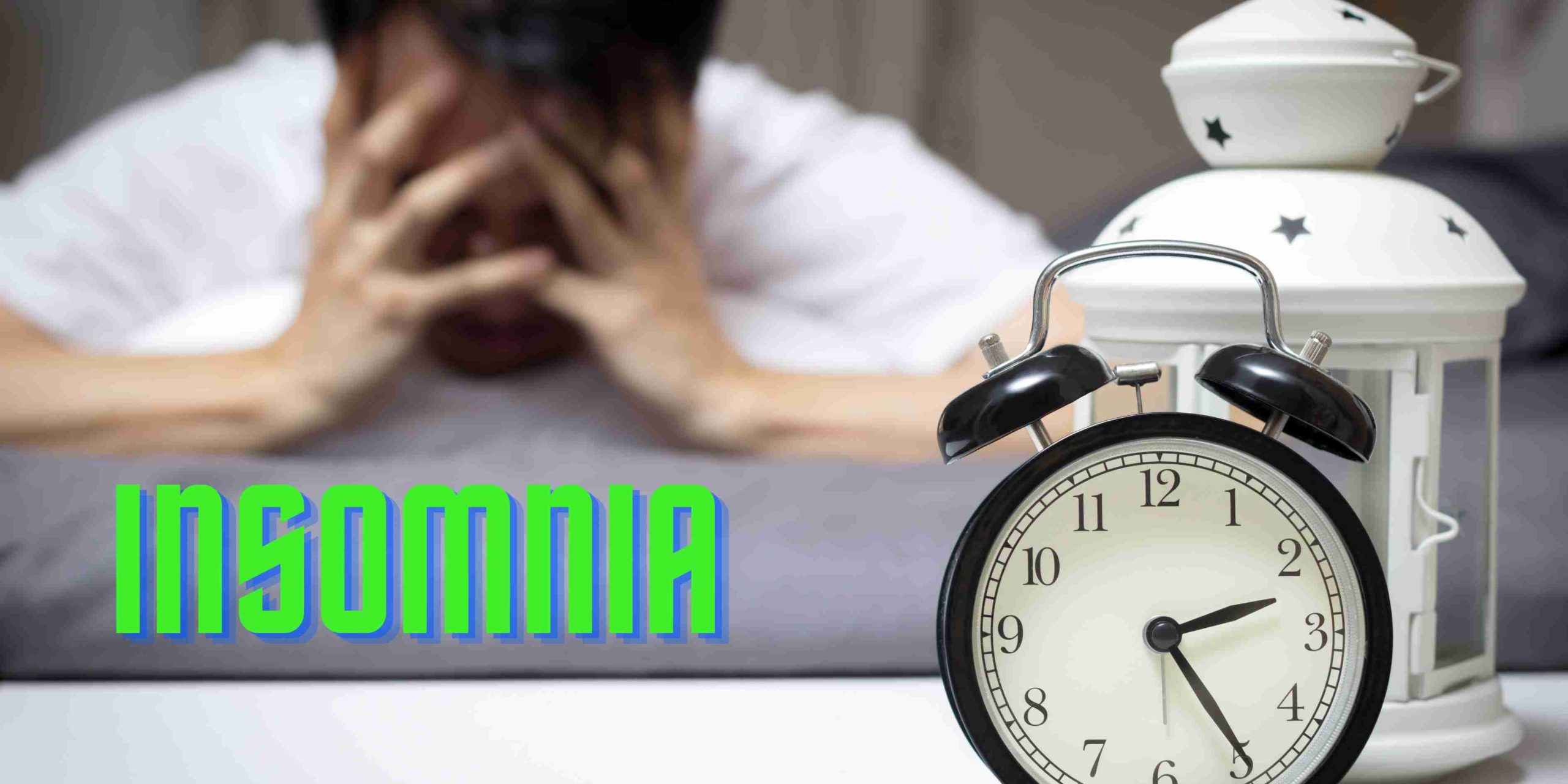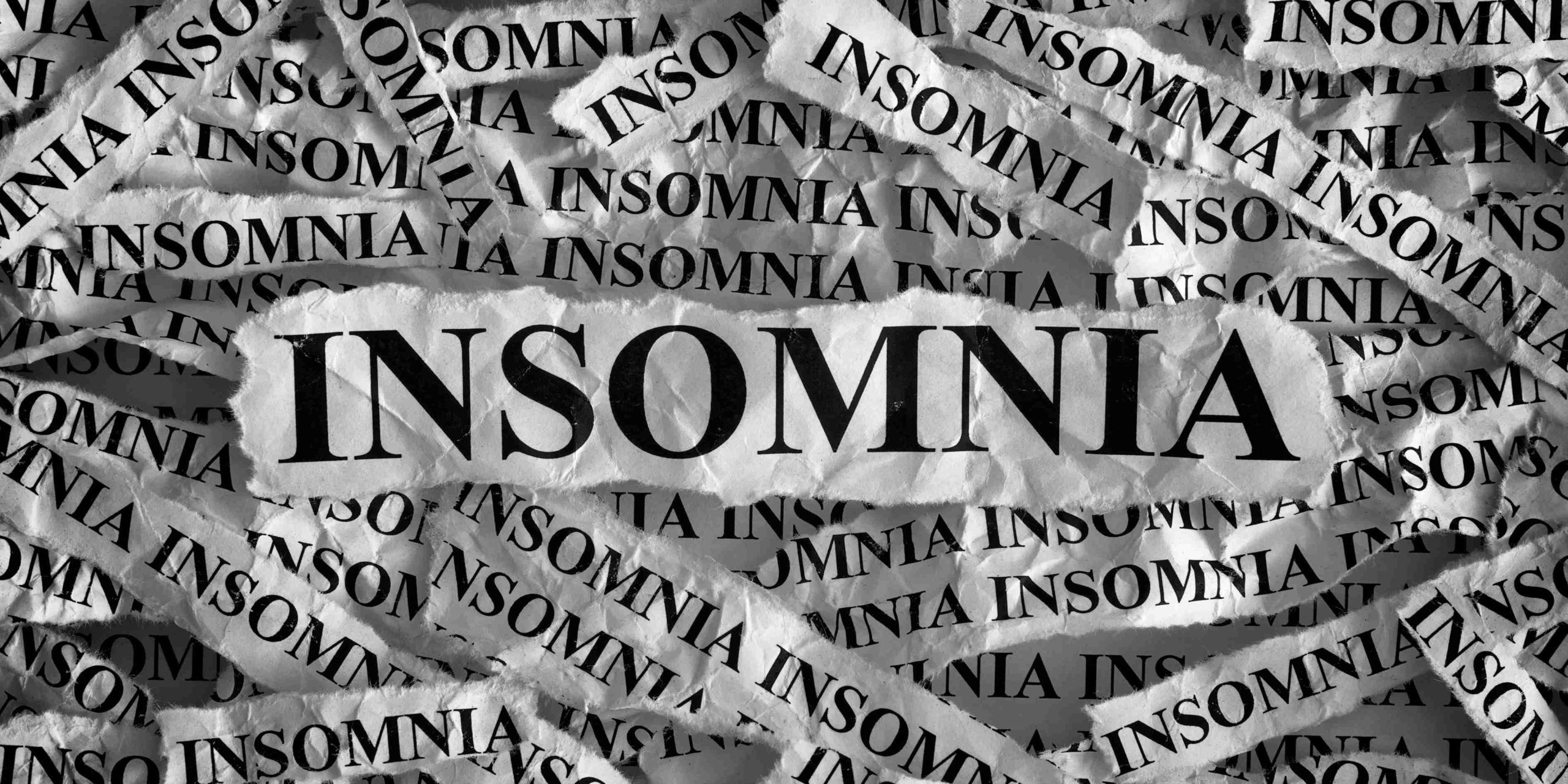
Have you ever woken up in the middle of the night wanting to go back to sleep? Or do you lay there staring at the ceiling, “counting sheep” as you struggle to drift off to sleep? You toss and turn all night, but nothing seems to help. This can be a very frustrating experience, leaving you tired the next day. So should you be worried about your insomnia, and is it something that needs treating?
What is Insomnia?
Insomnia is the inability to fall asleep or stay asleep long enough to feel refreshed. It’s a common problem affecting about 30 per cent of adults.
Insomnia can be short-term, lasting from a few days to a few weeks, or it can become chronic, lasting for three months or more. Insomnia may have many causes, including stress, anxiety, depression and other mental health conditions. It may also be caused by physical factors such as pain, illness or poor health habits (such as drinking too much caffeine).
There are two main types of insomnia:
Acute (short-term) insomnia.
This can last for days or weeks and usually isn’t caused by anything serious. Your habits and surroundings are the usual causes of short-term insomnia problems. Factors that contribute to insomnia can include:
- Stress or anxiety
- A change in sleeping environment (being a guest at a hotel or a relative’s home)
- An uncomfortable sleeping environment (too hot, too cold, too bright, too noisy)
- An uncomfortable mattress
- Pyjamas that are too tight
- Having a bed partner who snores or has disruptive sleep patterns
- Watching television, reading a book or problem-solving in your bed, so your brain associates lying down in bed without activities other than sleeping
- Eating a heavy meal before bedtime
- Taking a prescription medication that has insomnia as a side effect
- Drinking alcoholic beverages before bedtime
- Having a high intake of beverages containing caffeine (coffee, tea, cola) during the day
- Cigarette smoking
- Exercising immediately before bedtime
- Not exercising enough during the day, so you have energy to spare
- Taking a hot bath or shower before bed
- Travelling to a different time zone
- Travelling to a much higher altitude
- Shift work
Chronic (long-term) insomnia
It lasts more than three months, making it difficult to function normally during the day. An underlying medical condition or mental health problem often causes chronic insomnia.
Some common causes of chronic insomnia include:
- Psychiatric illness, especially depression or post-traumatic stress disorder (PTSD)
- Chronic medical illnesses, especially kidney disease, heart failure or asthma
- Painful illnesses, especially arthritis, neuropathy, acid reflux or cancer
- Hormone imbalance, especially menopause or hyperthyroidism
- Taking a prescription medicine that has insomnia as a side effect
- Restless legs syndrome — This disorder causes uncomfortable sensations in the legs. Symptoms can include twitching of the legs, a habit of repetitive leg movements, and leg cramps.
- Obstructive sleep apnea
Sleep apnea is a common condition. However, often the people that have this problem don’t realise it. Snorers or people who are overweight may have repeated episodes in which breathing stops for 10 seconds to 30 seconds during sleep, just when the person is relaxing into a deep sleep.
Sleep apnea is often caused by relaxing the tongue and throat tissues, which can settle into a position that closes your airway. Your body reacts to sleep apnea by releasing adrenaline-like “alarm” hormones so you will awaken and resume breathing. These hormones keep you awake for periods of the night.
Symptoms
Symptoms of insomnia can include:
- Difficulty falling asleep
- Waking up frequently during the night
- Waking up too early in the morning
- Daytime fatigue and low energy
- Poor concentration and memory difficulties

Diagnosis
Your doctor can often determine the cause of your insomnia by asking about your habits and sleep environment, reviewing your symptoms, and by examining you.
Your doctor may suggest that you keep a sleep diary (a log of your sleep patterns) to record how many hours you sleep, whether symptoms may trigger awakenings, and at what times you wake up.
You may need additional tests if your doctor suspects that a medical illness is causing your insomnia. An overnight sleep study at a sleep clinic may be necessary for some patients. During a sleep study, your brain waves, breathing patterns and oxygen levels can be monitored, and your body movements can be observed.
Promoting a Healthy Sleep
Sleep is one of the most important things in a person’s life. It is a time when your body and mind relax and recover from the day’s stresses. Without sleep, our bodies can’t function properly, and we become tired, irritable, and unable to concentrate.
Sleep also plays an important role in memory formation and learning. If you’ve ever found yourself struggling to remember something or unable to concentrate on what someone is saying, chances are it was because you were tired.
Here are some tips on how to promote healthy sleep:
- Establish a routine – go to bed at the same time every night (even on weekends) so that your body gets used to it. Once you’re in bed, go through the same steps every night (wash your face, brush your teeth etc.) to help you fall asleep more quickly once you’re in bed.
- Avoid watching TV or using other electronic devices at least 30 minutes before bedtime. The blue light they emit can suppress the production of melatonin, a hormone that helps regulate your sleep cycle.
- Keep your bedroom dark and cool. Exposure to light at night can disrupt your body’s internal clock, making it harder to fall asleep and stay asleep at night.
- Eliminate any sources of noise that prevent or disrupt sleep. If noise from outside your bedroom can’t be eliminated, it might help if you drown out that noise by creating a monotonous noise of your own. Use a fan, a channel with static noise on your radio, or a recording of ocean waves to make a noise that can lull you to sleep.
- Exercise regularly – exercising helps boost endorphins which makes us feel happier and less stressed out, which can help us sleep better. However, avoid exercise within three hours of bedtime (exercise raises body temperature, which may disturb sleep).
- Don’t drink caffeine – if you need energy during the day, drink green tea, which has less caffeine than coffee or other drinks.
- Cut down on alcohol – drinking too much alcohol will disturb your sleep patterns, resulting in “wakefulness as the effect of the alcohol wears off. Ideally, no alcohol should be consumed within four hours of going to bed.
- Don’t eat large meals in the evening; digesting large meals at night can interfere with deep sleep stages needed for restorative rest after a long day.
- Avoid daytime naps.
- If you read before bed, do this in a chair or in another room.
- Consider sleeping in a separate bed or separate room if your partner keeps you awake.
If you have chronic insomnia because of chronic pain, medical illness or psychiatric problems, seek prompt treatment for your health problem. Don’t assume that insomnia is an unavoidable part of your illness.
Treatment
Changes in your bedtime surroundings and habits that can promote sleep are usually the most important way to manage insomnia.
Behavioural therapies also may be used to treat some people, especially those with chronic insomnia. These therapies include:
- Relaxation therapy — Special techniques to quiet the mind and relax the muscles
- Sleep restriction — A program that at first permits only a few hours of sleep per night, then gradually increases the nightly sleeping time
- Reconditioning — A program that teaches clients to associate the bed only with sleeping (and sexual activity) by having the patient go to bed only when sleepy and avoid daytime naps
If insomnia is one of the symptoms of a medical disorder, treating the underlying problem may be all you need. For example, treating restless legs syndrome with specific medication or sleep apnea with a special mask can markedly improve sleep quality.
If changing your bedtime routine doesn’t help, a doctor may prescribe natural and non-habit forming sleeping pills.
Should I be worried?
In many people with insomnia, normal sleep patterns return within a few days, especially if a lifestyle issue (stress, a habit of heavy meals before bed, a change in time zones) disappears or is modified.
In people with chronic insomnia, the outlook depends on the underlying problem. Most people with obstructive sleep apnea experience relief when they use a nighttime nose mask that provides modest continuous air pressure through the mouth and nose. This mask must be prescribed by a doctor.
If you’re still unsure, complete Harley’s free online sleep assessment. One of our doctors can guide you on improving your sleep quality and returning to waking up feeling energised.

